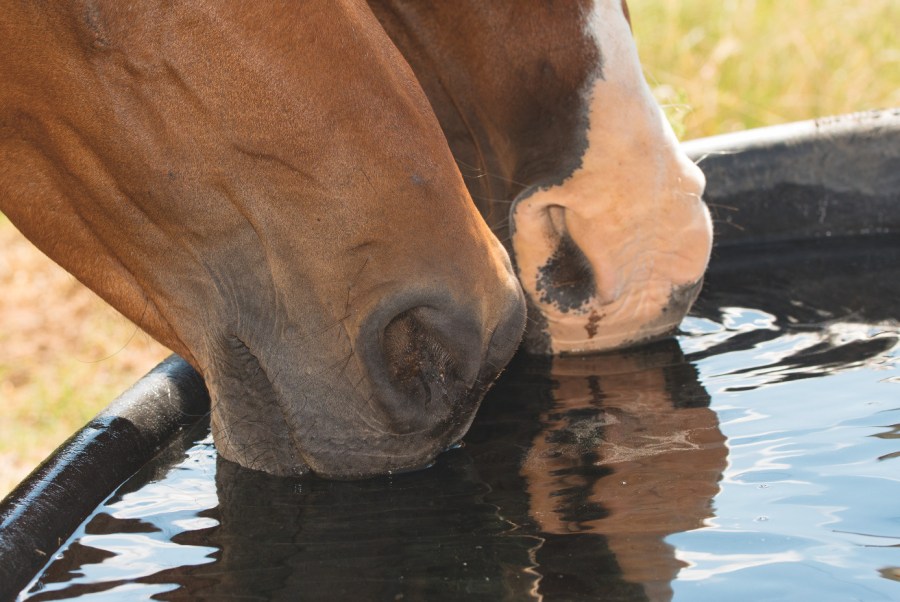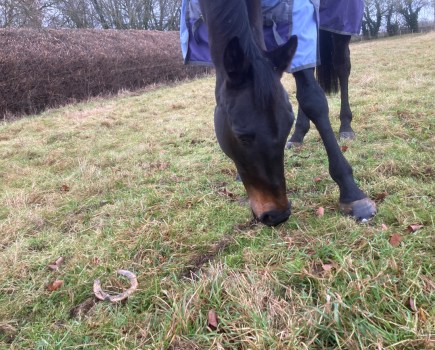Drinking tends to decrease with the onset of colder weather and horses will often drink less water during icy cold weather, particularly if there are any dental issues. Many horses will not break the ice on water and even a thin layer will prevent some horses from drinking, so it is vital that you do this for them and remove all or most of it to prevent it from resealing quickly. You must break and remove any ice regularly to ensure access to water is maintained.
A study from Penn State University showed that raising the water temperature from just above freezing to 4-18°C will increase the amount of water consumed by up to 40%. In some parts of the world, a water heater is recommended. Although sufficiently low temperatures for this to be needed do not often occur in the UK, it is worth taking steps to heat the water if it improves water consumption in cold snaps.
Dr David Marlin’s members area on his website provides access to science-backed information spanning a wide range of horse-related matters, including webinars, latest research findings, independent product trials and celebrity interviews, with the additional opportunity to join a friendly, supportive private community of fellow horse lovers. Pay-monthly membership is £8. Find out more and join here.
Adding a kettle of hot water to a full bucket of cold water can help increase water intake, although make sure to mix in the hot water thoroughly. For example, a two-litre kettle of boiling water (100°C) mixed in with 15 litres of cold water at 5°C, will produce a new water temperature of around 16°C.
When freezing conditions are predicted, be sure to have a back-up supply of water. Invest in water carriers so you can bring water from home, or fill every clean bucket at the yard, or both, and cover with a rug if necessary to prevent ice forming.
Keeping a kettle at the yard or even taking water in flasks to warm up water buckets is a really good option, particularly for horses with a history of impaction colic. Also insulate water pipes and taps and lag with turnout rugs or blankets to keep the water supply flowing.
Don’t be lulled into thinking that snow is a substitute for water! A horse would have to eat around 25 buckets of snow to access 25 litres of water. Remember, also, that horses cannot rehydrate just by drinking water; they also need access to water and electrolytes found in forage and feeds, or may be supplemented.









